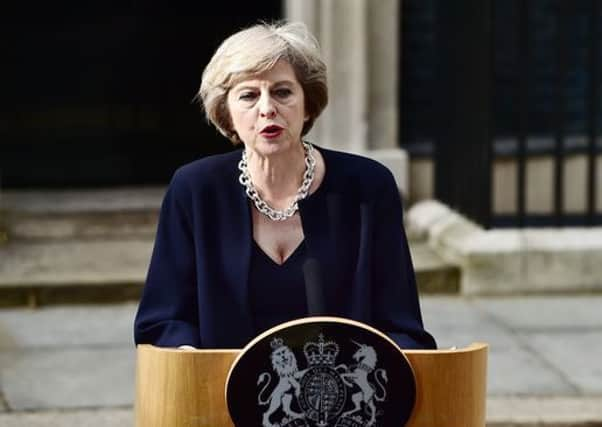Noble ideals, but can May affect real change?


Detractors can complain all they like about May’s lack of a mandate, because the truth is that Theresa - named after the 16th century Carmelite nun who spoke of a ‘world in flames’ - is looking like a very sensible and cool-headed prime minister, a no-nonsense leader whose inaugural speech about her commitment to social justice was inspiring and uplifting. If May is a woman of her word then we should expect a government committed to maintaining the union between England, Scotland, Wales and Northern Ireland as well as a government committed to the union between each and every citizen. May noted the ‘burning injustice’ in Britain today that if you are born into disadvantaged circumstances you are more likely to die younger, if you are black you are more likely to be badly treated by the criminal justice system than if you are white, and if you are a white working class boy you are less likely than any other demographic in Britain to go to university. She also noted that those who go to state schools in Britain are less likely to reach the top professions than those who are privately educated, displaying a keen awareness of one of the primary ways in which the class system is enshrined (though less so here in Northern Ireland where education remains a meritocracy) so that success and power is often allocated on the basis of hereditary connections rather than talent or ability. And she did not fail to address the gender pay gap or the dire need for better mental health services as rates of depression and anxiety soar across the UK at near epidemic levels - as issue of especial pertinence for post-Troubles Northern Ireland.
The second female British prime minister since Thatcher sounds vastly opposed to the ideas of ruthless individualism and free market excess that so defined the rule of her predecessor, although let us remember that Thatcher also made a beautiful speech before the true horrors of her agenda came to light. May sounds most sympathetic towards all those who struggle to make ends meet, including the younger generation who now find themselves unable to even think of affording a mortgage despite hard work. She sounds committed to addressing the immense social and economic problems we face and has pledged to lead a government that will work in the interests of the many rather than the privileged few, the mighty and the wealthy. It remains to be seen if May can translate these noble ideas into policies and real changes in easing burdens and paving the way for a more equal Britain. Please, God, not another Thatcher in disguise.
Theresa May proves a woman of her word.